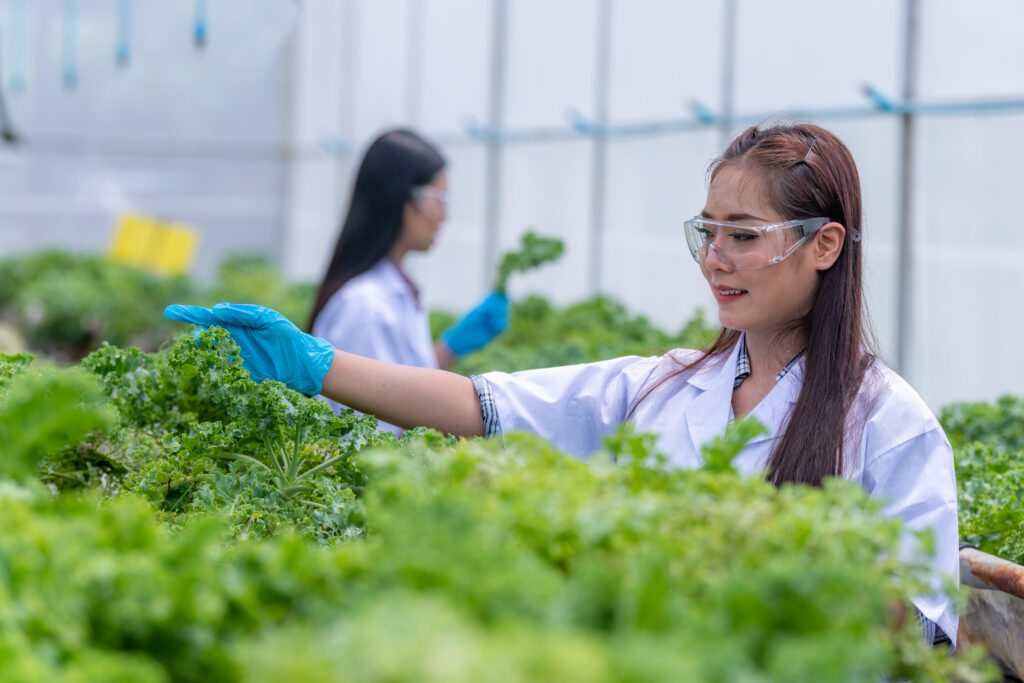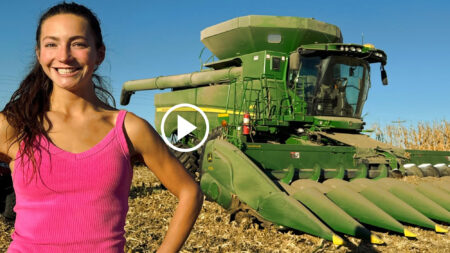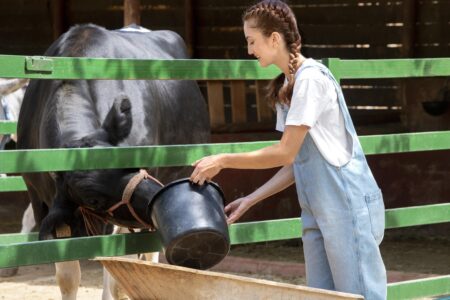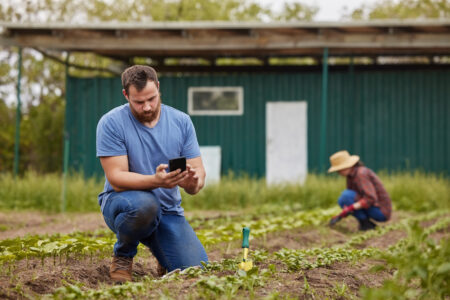Agriculture is the backbone of many economies around the world, providing food, raw materials, and employment opportunities. In this sector, women play a significant role as both producers and laborers. However, despite their substantial contributions, women often face challenges in accessing agricultural markets and benefiting from them. Empowering farm women in agricultural marketing is crucial for achieving gender equality, reducing poverty, and enhancing overall food security. In this article, we will explore the various ways to engage and empower farm women in agricultural marketing, highlighting the importance of addressing this issue comprehensively.
Understanding the Role of Women in Agriculture
Women have been essential contributors to the agricultural sector for centuries. In many rural communities, women actively participate in farming activities such as planting, weeding, harvesting, and animal husbandry. Their roles in agriculture are diverse and often span across various subsectors, including crop cultivation, livestock management, and agribusiness.
In addition to their roles as laborers, women also serve as decision-makers and managers on family farms. They are responsible for household food security, managing resources, and ensuring the well-being of their families. Their involvement in agriculture is indispensable, contributing significantly to agricultural production and rural development.
However, despite their critical contributions, women face various challenges and disparities when it comes to agricultural marketing. These challenges include limited access to resources, unequal land rights, financial constraints, and a lack of market information. Addressing these issues is essential to ensure that women can harness their full potential in agriculture and benefit from participation in agricultural markets.
Challenges Faced by Farm Women in Agricultural Marketing
- Limited Access to Resources: One of the primary challenges faced by farm women is their limited access to resources such as land, credit, and technology. In many regions, women have smaller land holdings compared to men, making it difficult for them to expand their agricultural activities. Access to credit and modern agricultural technologies is also limited, hindering their productivity.
- Gender-Based Constraints: Gender-based constraints and social norms can restrict women’s mobility and decision-making power. This often leads to a lack of autonomy in managing farm activities and marketing produce. Cultural practices and stereotypes may also limit women’s participation in agricultural decision-making and marketing.
- Unequal Market Access: Women frequently encounter obstacles when accessing agricultural markets. They may not have the same access to transportation, information, or market infrastructure as men. These disparities can result in lower market prices and reduced profits for female farmers.
- Lack of Financial Inclusion: Many women in rural areas lack access to formal financial services, making it challenging for them to invest in their farms, access credit, or save for the future. This lack of financial inclusion hinders their capacity to engage in agricultural marketing effectively.
- Limited Market Information: Access to market information is crucial for farmers to make informed decisions about what, when, and where to sell their products. Women often lack access to reliable market information, making it difficult for them to plan their marketing strategies effectively.
- Technological and Digital Divide: The gender gap in digital literacy and access to technology further exacerbates the challenges faced by women in agricultural marketing. Limited access to the internet and modern communication tools can hinder women’s ability to engage with market stakeholders and stay updated on market trends.
Strategies for Empowering Farm Women in Agricultural Marketing
Empowering farm women in agricultural marketing requires a multifaceted approach that addresses the various challenges they face. Below are several strategies that can be employed to enhance the participation of women in agricultural markets:
- Enhance Access to Resources:a. Land Rights: Promote and enforce land tenure reforms that ensure equal land rights for women, enabling them to own, lease, or inherit land.b. Credit Facilities: Establish women-friendly financial institutions and microcredit programs that provide women with access to credit and financial services for investment in their agricultural enterprises.c. Technology Adoption: Promote the adoption of modern agricultural technologies, machinery, and practices among women farmers through training and extension services.
- Gender-Sensitive Policies and Programs:a. Gender Mainstreaming: Implement gender-sensitive policies and programs that prioritize women’s participation in agriculture, recognizing their unique needs and contributions.b. Legal Reforms: Advocate for legal reforms that promote gender equality in agriculture, including equal rights to land, inheritance, and access to resources.c. Capacity Building: Provide training and capacity-building programs that equip women with the knowledge and skills necessary for effective agricultural marketing.
- Market Access and Infrastructure:a. Market Infrastructure: Invest in market infrastructure, including transportation, storage facilities, and marketplaces, with a focus on improving access for women.b. Market Information: Establish systems for disseminating market information to women farmers, enabling them to make informed decisions about when and where to sell their products.c. Collective Marketing: Encourage the formation of women’s agricultural cooperatives and associations to strengthen their bargaining power in markets.
- Financial Inclusion:a. Financial Literacy: Provide financial literacy training to women farmers to help them manage their finances, save, and make informed investment decisions.b. Access to Savings and Credit: Expand financial inclusion by making savings and credit services more accessible to rural women through partnerships with financial institutions.
- Technology and Digital Inclusion:a. Digital Literacy: Promote digital literacy programs for women in agriculture, ensuring they can effectively use technology to access market information and financial services.b. Mobile Banking: Encourage the use of mobile banking and digital payment systems to facilitate transactions and access to financial services for women in rural areas.
- Marketing and Business Skills:a. Training Programs: Offer training programs that focus on marketing and business skills, equipping women with the knowledge and tools to market their products effectively.b. Entrepreneurship Development: Foster a culture of entrepreneurship among women farmers, encouraging them to explore value addition and diversification of products.
- Networking and Market Linkages:a. Networking Opportunities: Facilitate networking and linkages between women farmers, input suppliers, processors, traders, and other market stakeholders.b. Market Linkage Programs: Develop programs that connect women farmers directly with buyers and help them access larger and more profitable markets.
Case Studies: Successful Initiatives for Empowering Farm Women in Agricultural Marketing
- India – Kudumbashree: Kudumbashree is a successful women’s self-help group program in Kerala, India. It focuses on empowering women in agriculture and promoting their participation in agricultural markets. Kudumbashree provides training, financial assistance, and access to markets, enabling women to engage in profitable farming activities.
- Rwanda – Hinga Weze: The Hinga Weze project in Rwanda aims to increase the incomes of smallholder farmers, with a strong focus on women. It provides women with training in modern agricultural practices, market access, and access to financial services, resulting in improved food security and economic empowerment.
- Kenya – One Acre Fund: One Acre Fund provides smallholder farmers, including women, with a bundle of services such as seeds, fertilizers, and training. It has a specific focus on empowering women in agriculture by offering training in financial management and marketing strategies.
- Bangladesh – Krishi Utsho: Krishi Utsho is an initiative in Bangladesh that supports women farmers in accessing agricultural inputs, credit, and market linkages. By providing these resources, it enables women to increase their agricultural productivity and income.

![Farmers Only Dating Review [2024 Cost, Features & How It Works!] Farmers Only Dating Review](https://www.women-farmers.com/wp-content/uploads/2024/07/Farmers-Only-Dating-Review-2-300x207.webp)












